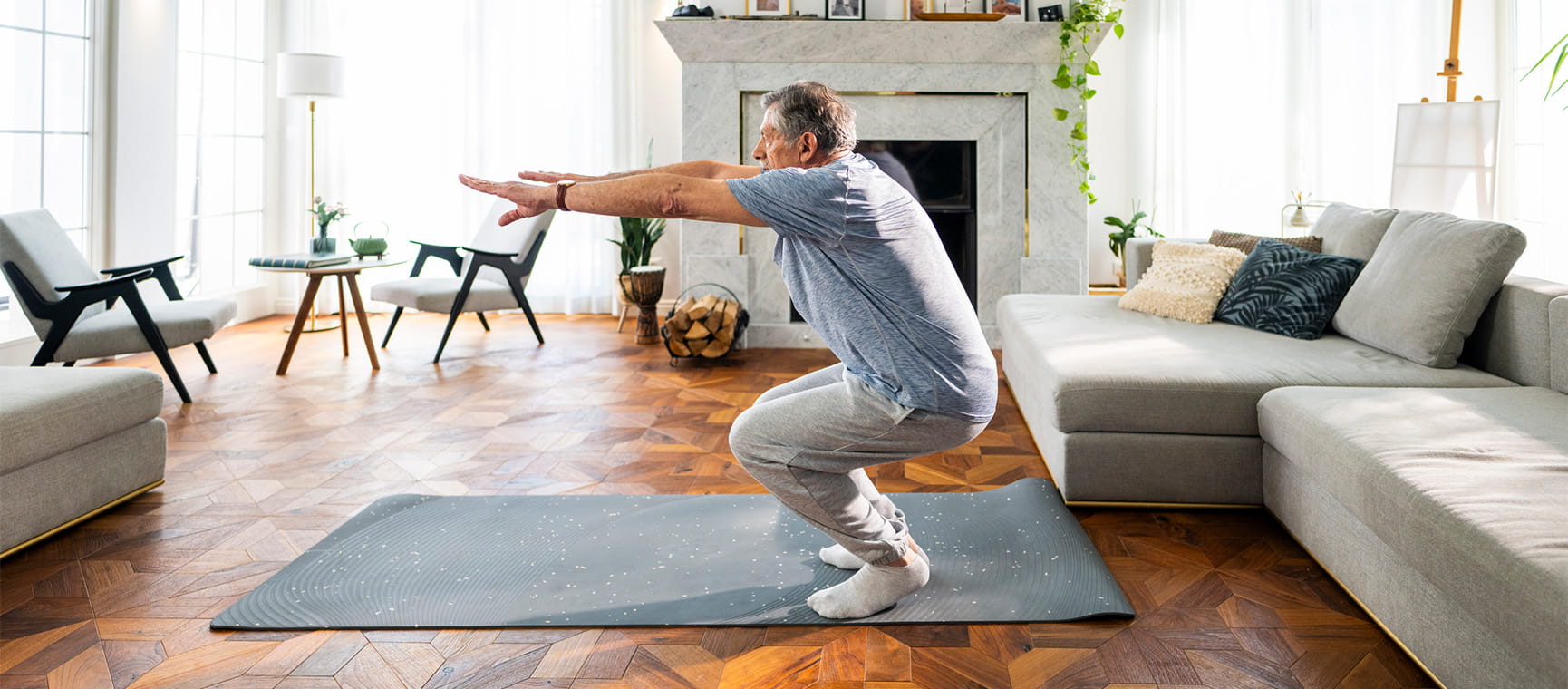We're living longer, but not healthier: how can we turn it around?
As a new study reveals baby boomers are living longer, but in poor health, we ask: what can we do about it?

As a new study reveals baby boomers are living longer, but in poor health, we ask: what can we do about it?

People in their 50s, 60s and 70s are living longer, but are more likely to have serious health problems than those born earlier, according to a new study.
Researchers from the UCL Centre for Longitudinal Studies and the University of Oxford found that people born before or during World War Two were healthier than the ‘baby boomer’ generation that came after them.
Lead author Laura Gimeno said: “With people living longer, our new study confirms that they are not necessarily spending their later years in good health. Even with advances in medicine and greater public awareness about healthy living, people born since 1945 are at greater risk of chronic illness and disability than their predecessors.”
Researchers analysed data on the health and mobility of 100,000 people aged 50 and above from 2004 to 2018 across England, Europe and the US. They collected information on a range of factors including body mass index (which shows whether you’re overweight) and grip strength (a key indicator of muscle strength and healthy ageing) and found obesity, cancer, heart disease and other serious illnesses were more common at younger ages.
Baby boomers in the UK were almost one and half times more likely to experience difficulties performing three or more personal care tasks compared to their earlier born peers at the same age. Grip strength also declined across generations in the UK and US, although it increased or remained constant in Europe.
Dr Deepali Misra-Sharp, GP at Birmingham’s Lordswood Medical Group and advanced menopause specialist, told Saga Magazine: “While it may seem like we’re suggesting older generations are healthier, that’s not always the case. Many of my patients in their 80s and 90s still deal with chronic conditions, but they often benefit from having led more active, less sedentary lives during their younger years.
“The take-home message isn’t that younger generations are worse off, but that there are lessons we can learn from how older generations have lived - and apply them now to improve our health as we age.”
And the news is not all doom and gloom: you can make lifestyle changes at any age that can help you live a long, healthy life.
“As a GP, I strongly believe that prevention is better than cure, especially when it comes to lifestyle-related conditions like obesity, hypertension, and heart disease. It’s crucial for us to support and encourage baby boomers to take steps now to improve their health, regardless of age,” says Misra-Sharp.

Although life expectancy is easy to measure, health is more complicated and a 2023 survey showed that people in the UK felt their health is the worst in the world. Last year, the Oxford Longevity Project revealed the UK had its own Blue Zones – places where there are more than 52 centenarians per 100,00 people. Bournemouth and Bognor Regis were named as two of the longevity hotspots, but research from The Health Foundation has pinpointed a 10% difference of life expectancy in deprived and more affluent areas.
Toby Watt, lead economist at The Health Foundation’s REAL Centre, told Saga Magazine: “In deprived areas, obesity and smoking rates are higher and there’s more exposure to air pollution, so you see more chronic pain and COPD, a very serious lung condition. It varies hugely, but these illnesses start in the early 60s in the most deprived areas and later – in the early 70s – in the least deprived.”
Speaking about the ‘generational drift’, Watt points out that while people are taking steps to become healthier in some ways, there are others where there’s a decline.
“Health trends have been going in different directions. For example, smoking is less common now, and pharmaceutical intervention [medications] means you can reduce cholesterol and keep blood pressure low. They’re two really helpful pro-health trends,” he says.
“The one that’s going the other way is BMI and the prevalence of obesity, but the reasons for that are extremely complicated. Food environments play a part, with the price of fresh fruit and vegetables rising faster than processed, calorie-dense foods.”
You might be reading this fresh from a long hike with the dog – or wishing you had the motivation to eat a little better and get out for a morning walk. The important thing to remember is it’s never too late to make lifestyle changes at any time. And small changes do help.
This doesn’t have to mean intense exercise at the gym. Misra-Sharp says: “Regular walking, swimming or even gardening can have a huge impact on cardiovascular health, joint mobility and mental wellbeing. Start with ten-minute walks and build up gradually.”
“Small, manageable changes to diet can make a real difference, particularly changes like reducing processed foods, increasing fibre intake, and eating more fruits and vegetables. For example, swapping a sugary snack for a handful of nuts or a piece of fruit can be an easy first step,” says Misra-Sharp.
It’s not easy to do, but it can make a real difference, says Misra-Sharp: “If someone smokes, or drinks excessively, stopping or reducing these habits can significantly improve their long-term health. Stop smoking support is available through NHS services. Cutting back on alcohol by even a few drinks a week can also make a real difference.” You could try Sober October for inspiration.
“Many baby boomers are experiencing the stresses of retirement, caring for ageing parents or dealing with health changes,” says Misra-Sharp. “Managing stress and mental wellbeing through mindfulness, talking therapies or simply staying socially active can greatly improve your quality of life.”
Blood pressure screening can be done at home and is also available at your GP surgery and many local pharmacies. If you’re invited for a NHS health check, or diabetes screening, or cholesterol testing, take it up. “Early detection of potential issues gives us a chance to intervene before they become more serious,” says Misra-Sharp.

Are you retiring at the wrong age? The best age to retire for your body, brain, happiness and pocket.


Everything you need to know about the lung infection, and how you could be ill with “walking” pneumonia without realising it.

Strong calves for a strong mind: how they support our circulation and brain health, with easy moves to strengthen yours at home.


Our GP Dr Mark Porter explains what can cause itchy skin, which is a common problem as we get older.

Worried you’ve morphed into Victor Meldrew? Find out how to battle that bad mood, and what to do if you’re stuck with a grouchy loved one.

The benefits of heat and cold therapy, and how Nordic bathing won over our nervous writer.

Here’s how to spot the symptoms of heat disease and reduce your danger.


The NHS winter vaccination campaign kicks off next week. Here’s the lowdown on what you need to book.

Pilates for back pain – what to do if you are suffering, and five gentle exercises that could help.

Dizziness or vertigo: a sensation of spinning, can stop us doing everyday things for fear of falling. Try these tips to stop feeling dizzy


You don’t have to put up with bladder leaks. We try out the latest pelvic floor gadgets for men and women.

Cataracts are a normal part of ageing. Learn how to spot the signs – and when it’s time to consider surgery.